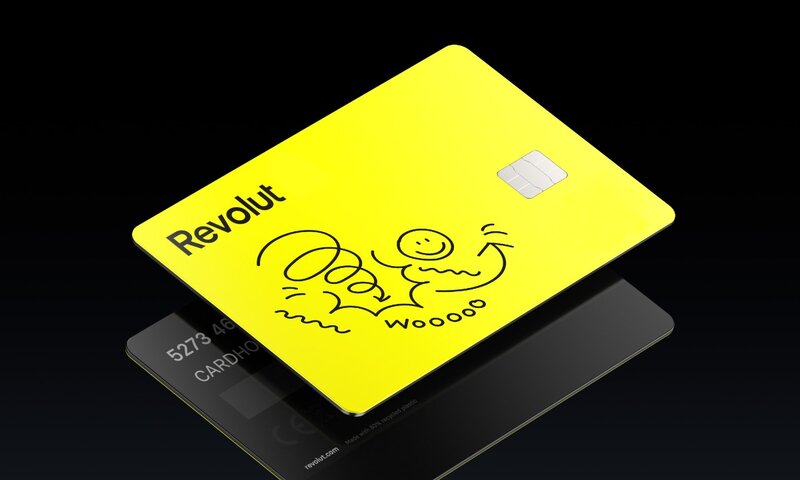Because personal loans are often used to fund things like travel, weddings or cars - they’re a form of bad debt. Bad debt is anything that’s used to fund your lifestyle or that is spent on things that have no value or will decrease in value over time - unlike ‘good debt’ which is spent on something that will grow in value or produce income (like a mortgage or student loan debt).
But that doesn’t mean to say it’s a blanket rule and that you should absolutely never take out a personal loan - there are some instances where a personal loan can be useful. The key is to make sure you can comfortably afford the repayments and that you’re taking out a personal loan for a good reason (sorry to burst your bubble but there are better ways to finance that trip to Greece!).
When to take out a personal loan
You want to consolidate debt
Taking out a personal loan can make sense if you’re drowning in multiple debts and want to consolidate them all into one loan with one monthly repayment.
For example, lets say you have a $10,000 credit card debt with a 20% interest rate, $7,000 outstanding on a personal loan with a 10% interest rate, and a further $3,000 on a personal loan with a 7% interest rate. In that situation, you may be able to consolidate them all into a $20,000 personal loan with a 10% interest rate and pay down all your debts at the same time with one monthly repayment and interest only accruing on one loan - not three.
You’re covering an unexpected bill
In an ideal world, you’d already have an emergency fund set up to cover any unexpected bills.
But if you don’t, taking out a personal loan when you’ve been stung with an emergency $6,000 dental bill or your washing machine breaks and floods your apartment makes sense because the main concern here is quick and easy access to cash.
You want to finance a renovation that will add value to your home
There are other ways you can finance a renovation, including through your hard earned savings, by using the equity in your home, or via a construction loan.
However, a personal loan can be helpful for funding smaller renovations, as most personal loans have a borrowing limit of $50,000 and a lower interest rate than a credit card.
When you shouldn’t take out a personal loan
You’re taking out unnecessary debt
If the cost of taking out a personal loan outweighs any benefits, you probably shouldn’t take out a personal loan. An example of this is when you’re taking out a personal loan purely for the sake of consumption (discretionary spending) such as borrowing money for a holiday.
While you might try and argue that the benefits outweigh the costs (because hello - it’s a HOLIDAY) is taking out a personal loan really worth it in this case if the personal loan ends up being more expensive than the holiday actually cost? For example, you need $10,000 to fund your trip to Greece immediately because the COVID vaccine is here and international borders are finally open and you can’t remember the last time you left your city, let alone the country.
So you take out a $10,000 personal loan and hop on a plane ASAP. Life’s great for a few weeks: an endless blur of sandy beaches and island hopping - until you get back from your trip and have to start making those loan repayments. Over the life of the loan, you end up paying an additional $2,000 in interest and fees. That $10,000 trip has now turned into a $12,000 trip - an extra $2,000 that you could’ve spent on something else, like the new iPhone 12 Pro Max or on Gamestop shares… Was it really worth taking out that personal loan when you ended up spending an additional $2,000 in fees and interest?!
When it comes to something like a holiday, unless you already have the money ready to go in the form of savings, it’s best not to take out a personal loan.
You’re not confident you’ll be able to repay the loan
You should only ever borrow money if you’re confident you will be able to afford the loan repayments. If you take out a loan and aren’t confident in your ability to make the repayments and end up missing one, you will damage your credit score which could make it harder for you to take out a loan in the future.
You could get a better deal with an alternative financing option
If you really need fast access to cash, a personal loan isn’t the only option. Depending on your reasons for needing the money, other options exist including a line of credit loan (for home renovations), or a credit card. Before applying for a personal loan, compare your options to see if there’s a better alternative out there.
Personal loan alternatives
Savings
We’re probably biased, but the best form of finance in our opinion is your own savings, especially for discretionary purchases like travel. You don’t have to make any repayments or owe interest, and you appreciate the holiday or whatever it is more because you know how hard you’ve worked to save up for it.
Line of credit loan
If you’ve got a home loan, a line of credit loan could be a suitable alternative to taking out a personal loan.
A line of credit loan essentially acts as a ‘credit card for your house’ that allows you to access the equity you’ve built up in your property. You can withdraw up to a certain amount which is determined by your lender. Unlike a personal loan, lines of credit have no set loan term. Instead, you just borrow up to a certain amount of money and make regular repayments.
Line of credit loans only have variable rates and interest is only charged on the amount drawn, while some even allow interest costs to be added to the drawn balance (up to your approved limit). This makes line of credit loans more flexible than personal loans. Line of credit loans generally have lower interest rates than personal loans too.
Credit cards
Credit cards can also be useful in providing credit for short-term expenses as they offer a more flexible repayment structure than personal loans. Credit cards can be a good financing option for travel as some credit cards can offer benefits like frequent flyer points and complimentary travel insurance.
However, credit cards do generally have higher interest rates and fees than most personal loans.
See also: Personal loans vs credit cards
Pros and cons of personal loans
|
Pros |
Cons |
|---|---|
|
Often lower interest rates than credit cards. The average interest rate for credit cards is very high, sitting at 19.94% while the average interest rate on personal loans is closer to 10%. |
High interest rates. While interest rates on personal loans are generally less than those on credit cards, they’re still high and it adds up. If you were to take out an unsecured personal loan for $12,000 and pay this back over a loan term of 5 years with an 11.99% interest rate, you would end up paying back $16,012 (not including any upfront or ongoing fees). That’s over $4,000 extra just in interest! |
|
Flexibility of use. You can use personal loans to pay for many types of expenses, from weddings and holidays, to home renovations, cars, engagement rings, medical bills, debt consolidation, etc. |
Fees. Personal loans come with all kinds of fees, such as upfront and ongoing fees, exit fees/break costs for fixed loans, and early repayment fees. This can make personal loans expensive in the long run. |
|
Easy application process. Applying for a personal loan is very easy and the approval process is fast if you have a good credit score, meet all the eligibility criteria and have all the supporting documents. The funds can be in your bank account within 1-2 days or less, which is handy if you need quick access to cash in an emergency. |
It’s bad debt. Sometimes things just happen and you need access to money fast - but you should always avoid going into bad debt if you can. Consumer debt like personal loans are debts that you’ve incurred for things that will not increase in value or improve your financial position and will delay or stop you from achieving your money goals - so if you can avoid taking one out you probably should. |
Savings.com.au’s two cents
There are times when taking out a personal loan could make sense, like if you’re trying to consolidate debt or you don’t have emergency savings and you need to cover an unexpected bill ASAP.
But if you’re taking out a personal loan for discretionary purchases like a holiday or a $3,500 lounge, you should reconsider whether it’s worth going into debt for, or if you could exercise a bit of discipline and patience and save up for those kinds of expenses instead. Get comfortable with delayed gratification - you may really want that trip to Greece or the expensive lounge but you definitely don’t need it. Instead, make a savings plan and work hard towards that goal - you’ll appreciate it so much more when you finally have the money for it because you know how hard you’ve worked to save for it.
To get started, we’ve got plenty of guides on how to budget and save money - even if you’re bad at saving.
Photo by Ryan Christodoulou on Unsplash



 Harrison Astbury
Harrison Astbury
 Harry O'Sullivan
Harry O'Sullivan